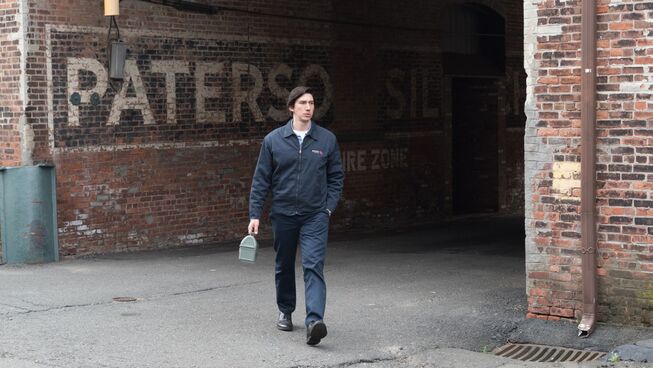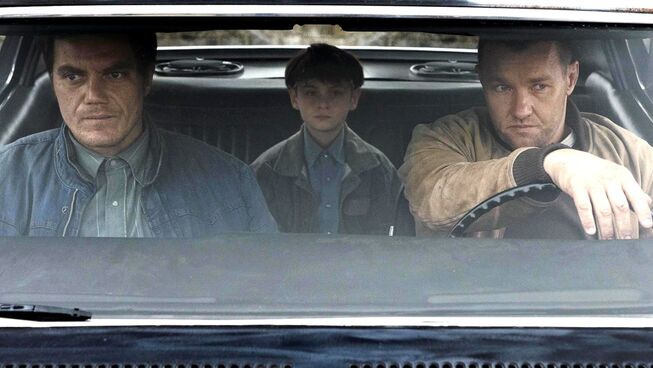
4 out of 5 stars
The very nature of his life and his name is poetic: Paterson (Adam Driver) is a bus driver in the city of Paterson, New Jersey. The city he drives through each day was the birthplace of one of the world’s most famous poets, William Carlos Williams. Even though Paterson’s day is a series of unremarkable events, the subtleties and poetry of his life are found in amongst the mundane. From waking up to walking to work to driving the bus throughout the blue-collar community and eventually returning to his wife, Laura (Golshifteh Farahani) and their bulldog, Marvin, the beauty is found in between the lines. These subtleties are not lost on Paterson who escapes the monotony through his own poetic expression. He is able to write in the short breaks between driving and his unique home life. The bus driver from Paterson is able to tap into the very soul of his existence and find the artistic turn of phrase that shows the beauty in his being.
Writer and director Jim Jarmusch (Only Lovers Left Alive) manages to deliver a film that is poetic to the core. Showing that poetry is not merely for greeting cards and university course work. What seems like a slow, methodical and less humorous re-telling of Groundhog Day, turns into a lesson in seeing the beauty in between the lines of life. Adam Driver (Silence) manages to communicate the charm and tragedy of the simple life. His understated delivery manages to draw audiences in to his performance and causes them to care for him despite his seemingly colourless existence. To balance out Driver’s character, Jarmusch provides the colourful and daydreaming Laura, who is played by Golshifteh Farahani (Exodus: Gods and Kings). Her entrepreneurial drive and desire to escape the monochromatic life in Paterson is the perfect foil to her husband’s life. The couple is surrounded by a plethora of personalities that add the spice that helps to inspire Paterson in his passion for verse and rhymes.
In amongst the poetic words and imagery lies a problem, which can be considered to be poetic in itself. This is a film that only the artists and poets can truly celebrate. Even though poetry surrounds every person’s life, it is rarely appreciated or acknowledged. Paterson will be relegated to literature classes and film appreciation courses, because like poetry, it is misunderstood. Like watching the bus driver work through the creative process, which can be considered tedious and boring, this will be a difficult film for audiences to celebrate. Like many of the great poets, who are usually cherished after their death, this will be a film that will be admired from afar. It is a work of art that needs consideration and conversation to accompany it as it makes its way into the hearts of the poets who will love it for what it represents.
REEL DIALOGUE: What are some of the bigger questions to consider from this film?
1 Timothy 2:1-4 First of all, then, I urge that supplications, prayers, intercessions, and thanksgivings be made for all people, 2 for kings and all who are in high positions, that we may lead a peaceful and quiet life, godly and dignified in every way. 3 This is good, and it is pleasing in the sight of God our Saviour, 4 who desires all people to be saved and to come to the knowledge of the truth.
Many films celebrate the grand and exciting people of the world, but there is something to be said of the quiet life. In the film Paterson and in this short passage from the Apostle Paul, there is something to be said about the quiet and peaceful life. Something that can be celebrated and gives way to a special connection with life and even God.
Passages on a quiet and peaceful life: 1 Thessalonians 4:11-12, 2 Thessalonians 3:11-12, 1 Timothy 2:1-4







